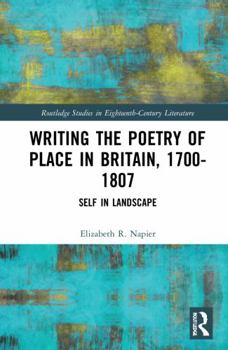Writing the Poetry of Place in Britain, 1700-1807: Self in Landscape
This book discusses the intrusion, often inadvertent, of personal voice into the poetry of landscape in Britain, 1700- 1807. It argues that strong conventions, such as those that inhere in topographical verse of the period, invite original poets to overstep those bounds while also shielding them from the repercussions of self-expression. Working under cover of convention in this manner and because for many of these poets place is tied in significant...
Format:Hardcover
Language:English
ISBN:1032188170
ISBN13:9781032188171
Release Date:November 2022
Publisher:Routledge
Length:202 Pages
Weight:1.01 lbs.
Dimensions:0.6" x 6.0" x 9.0"
Customer Reviews
0 rating





